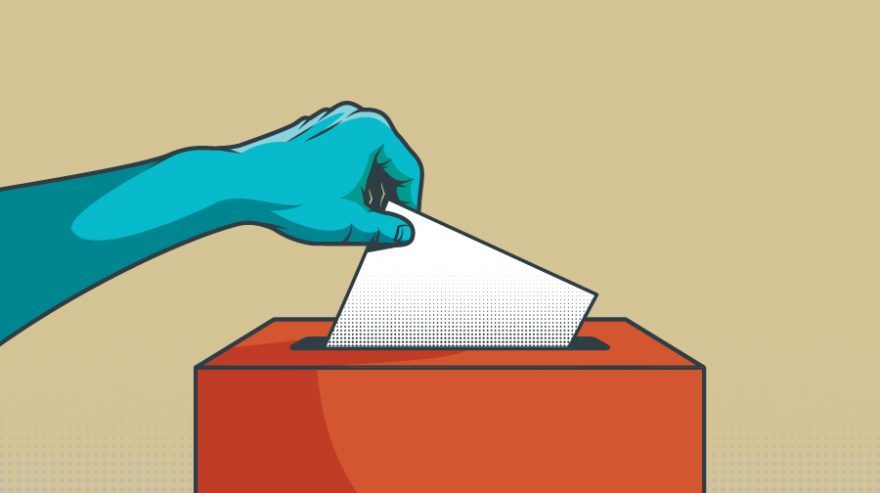Congressional Midterms: Don’t Expect Major Shakeups in Education Policy and Funding

Education companies might not have to fret too much about the results of the upcoming federal elections, regardless of potential power shifts in the U.S. Congress.
That’s according to an education expert who advises K-12 groups on the federal budget and policy.
Reg Leichty, a founding partner at Foresight Law + Policy, said recent history suggests there won’t be much in the way of changes to big-ticket education priorities as a result of the upcoming election.
“There’s a lot of support for ed tech on both sides of the aisle,” said Leichty, who represents education entities trying to understand policies coming out of Washington, including Congress and the U.S. Department of Education. “I wouldn’t expect that to be a partisan lighting rod.”

For example: Rural lawmakers from both parties have a vested interest in making sure students have access to devices and broadband to facilitate learning, Leichty said. That’s an area that Congress has supported heavily through various forms of stimulus funding, including one pool focused on at-home learning.
“Shifts in partisan control may impact the role that the federal government plays and the level of investment the federal government makes,” he said. “But the policy and funding and questions about how ed tech could help tends to be less about partisan positions and more about the different types of advantages that technology conveys.”
K-12 companies trying to gauge what the election results mean to them will be focused on a variety of state and local races, both of which will go a long way toward shaping school budgets and policy. The vast majority of pre-college education funding, about 90 percent, flows from state and local governments, while the feds chip in about 10 percent.
But federal elections can also have a big impact.
Both the Democratic-controlled U.S House and Senate are up for grabs on Nov. 8. The presidency will remain with Democrats through 2024.
And Leichty said having control of the White House will give Democrats some muscle when having to negotiate on issues like K-12 funding — if Republicans gain control of one or both chambers.
We asked Leichty to weigh in on how the federal elections could shape education-related issues:
What is your broad outlook on how the congressional mid-terms will affect school policy and funding?
Regardless of what happens with Congress, the White House always has outsized leverage in the process. So the first takeaway is I’m not expecting any dramatic changes in policy, even if the Republicans take both the House and Senate.
There’s a lot of attention on whether the GOP wrests control of either chamber. But you don’t see big shifts in store because of that?
In a divided government, if one or both houses of Congress shift to the Republicans, the best we would hope for is something like level funding to modestly increased funding.
With the White House having sort of outsized leverage in the process, I wouldn’t expect funding cuts. But I think there’ll be discussions about what the appropriate level of federal funding should be. With the Democrats controlling the White House that probably results in a worst case scenario of just level funding.
What happens if Democrats retain control of both chambers?
Now if by chance, and against historical precedent, should the Democrats control both bodies after the midterms, and we have single-party control again, you might imagine investments growing in some areas. But again, without a 60-vote Senate, which is not gonna happen, you really wouldn’t expect that. There’s gonna be some negotiation over the spending process that results in something like kind of level-to-slightly-higher funding.
Are there any education issues you see Democrats and Republicans working together on?
There are a couple of issues important to education that will carry over to the new Congress. One of them that’s tangentially related to education is workforce policy. We know both Republicans and the Democrats will continue that conversation, and that impacts things like youth apprenticeship in our high schools and services for out-of-school youth. If I were a K-12 leader then I’m thinking about this national focus right now on making more students and adults ready to be successful in the workplace.
What else can we expect bipartisan support on?
The second issue that carries over regardless of control of the Congress is this consumer privacy debate that has emerged in the House and Senate Commerce committees where, you know, you see pretty sweeping bipartisan support for greater burdens on companies. And it includes a change to the Children’s Online Privacy Protection Act, raising the age of coverage of that law from kids that are less than 13 to kids that are 17 or younger. That has implications on all of the educational technology initiatives that K-12 schools undertake.
What new education policies could a GOP-led House or Senate pursue?
With a Republican House or a Republican Senate there could potentially be a lot of emphasis on oversight of state and local use of all COVID funding. There has been a lot of oversight in this Congress, but my expectation is that if there’s a shift in control, that then oversight hearings might be more frequent and focused on different elements of investment based on partisan interests.
Aside from that, there is potentially a strand of work that I think a Republican Congress could focus on around some of the issues we’ve seen in this election cycle dealing with what’s the role of parents in the education system and how do we effectively address educator shortages.
Follow EdWeek Market Brief on Twitter @EdMarketBrief or connect with us on LinkedIn.
Image by Getty
See also:
